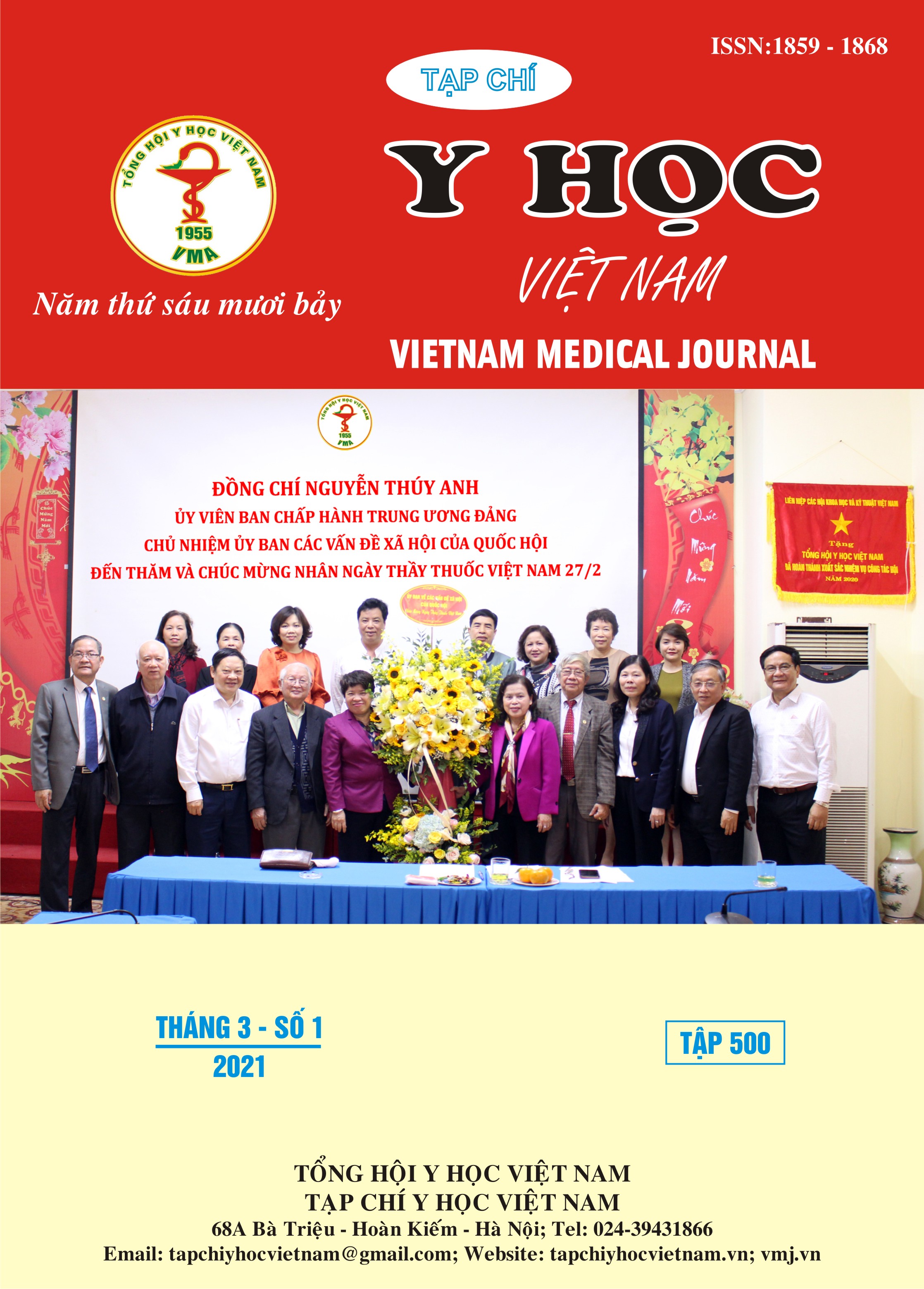TREATMENT MEASURES FOR METHANOL POISONING AT POISON CONTROL CENTER OF BACH MAI HOSPITAL
Main Article Content
Abstract
Fomepizol is not available in Vietnam, therefore, the treatment of methanol poisoning focuses on the main measures: resuscitation, dialysis, aggressive use of bicarbonate and oral ethanol. Objective: to evaluate the rates, characteristics and outcomes of the treatment measures applied to patients with acute methanol poisoning at the Poison Control Center (PCC). Subjects and Methods: A observational study included 107 methanol poisoned patients treated at the PCC of Bach Mai Hospital from January 2016 to July 2019. Results: The applied treatment measures for acute methanol intoxication were mechanical ventilation (78.5%); using vasopressors (43.9%). The rate of patients required ventilation and using vasopressors were higher in the fatal group than that in the survival group (p<0.01). Bicarbonate was used to rapidly correct acidosis in 99.1% of the patients. The percentage of using bicarbonate more than 500mEq and the amount of bicarbonate to be used in the fatal group was higher than the survival group (p <0.05); 82.2% of patients received 20% orally ethanol, the average amount of ethanol was 1093.8 ml; 99.1% of patients need dialysis, of which 90.7% were intermittent hemodialysis and 8.4% were CVVH. Average duration of hemodialysis was 7.6 ± 3.34 hours. The mortality rate of methanol poisoning was high (41.1%). Conclusion: acute methanol poisoning was life-threatening and the treatment required a combination of aggressive resuscitation measures, use of antidotes and dialysis.
Article Details
Keywords
acute poisoning, methanol, treatment
References
2. Barceloux D.G, et al. (2002). American Academy of Clinical Toxicology practice guidelines on the treatment of methanol poisoning. J Toxicol Clin Toxicol, 40(4), 415-46.
3. Goodman J.W., Goldfarb D.S. (2006). The role of continuous renal replacement therapy in the treatment of poisoning. Semin Dial. 19(5), 402-7.
4. Kute V. B., et al (2012). Hemodialysis for methyl alcohol poisoning: a single-center experience. Saudi J Kidney Dis Transpl. 23(1), 37-43
5. Lee C.Y., Chang E.K., Lin J.L., et al (2014). Risk factors for mortality in Asian Taiwanese patients with methanol poisoning. Ther Clin Risk Manag, 10, 61-7.
6. McMartin K., Jacobsen D, Hovda K.E, et al (2016). Antidotes for poisoning by alcohols that form toxic metabolites. Br J Clin Pharmacol; 81(3):505-15.
7. Wedge M.K., Natarajan S., Johanson C., et al (2012). The safety of ethanol infusions for the treatment of methanol or ethylene glycol intoxication: an observational study. CJEM; 14(5):283-9
8. Zakharov S., Nurieva O., Kotikova K., et al (2017). Positive serum ethanol concentration on admission to hospital as the factor predictive of treatment outcome in acute methanol poisoning. Monatsh Chem, 148(3):409-419.


